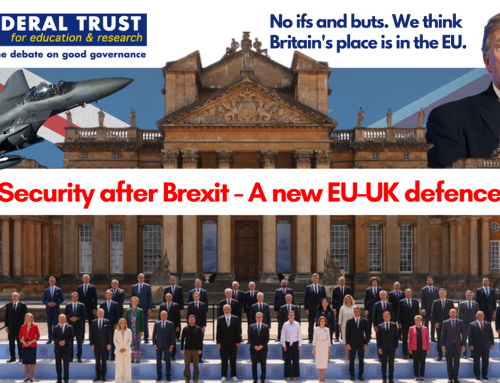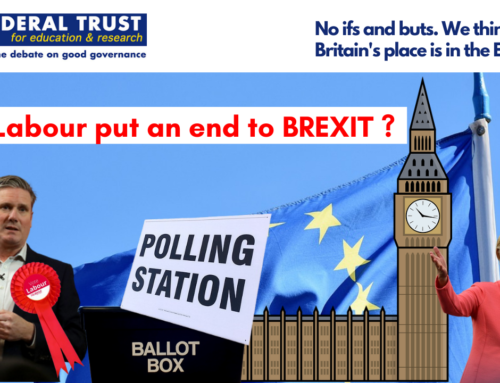by Professor Richard Whitman
October 2016
This article was first published in “International Affairs”.
Since the referendum vote in June the majority of attention has focused on what might be the future economic relationship between the UK and the European Union (EU) and the prospects for the UK’s trade relationships with third countries once outside the EU. The future for the UK’s foreign and security policy has been given much less attention.
As argued in a piece published in the May 2016 issue of International Affairs the EU has been a centrepiece in Britain’s foreign policy. Consequently exiting the EU presents the need for a major rethink in the aims, ambitions and conduct of British diplomacy. Neither the Prime Minister’s UN General Assembly address in September nor the Foreign Secretary’s 2nd October speech to the Conservative Party conference provide sufficient detail on the objectives of future UK foreign policy.
There is no precedent for a country choosing to leave the EU. This means that the consequences of departure for the UK’s foreign and security policy are uncertain and because EU membership has been a key component of the UK’s diplomacy and foreign policy since 1973. The UK’s pre-accession past is not a helpful guide to an alternative future, as the contemporary international context is very different from the Cold War environment within which the UK joined the EU in the early 1970s. Further, through its current membership of the EU, Britain participates in a set of policies that structure relationships between the EU and other states and organizations involved in international relations. With Brexit, this set of policies—covering trade, security (including defence), development and foreign policy will need to be to be recalibrated. Brexit also requires the UK to counter a view that Britain is opting for a reduced international role and influence. Defining the ambitions of a post-EU foreign policy will be a major undertaking for the next decade and a new European diplomatic strategy needs to be the first priority
Alteration of Britain’s status in relation to the EU will also require an extensive recalibration of its bilateral relationships with both its EU and non-EU European neighbours. Negotiating the exit from the EU itself will now occupy extensive diplomatic and political bandwidth for at least the next two years (possibly as much as a decade)—capacity which will be hard-pressed to also focus on the other extensive and pressing set of security challenges currently faced by the UK.
Aside from negotiating its own exit from the EU the UK also has to determine its own strategic objectives for its future relationship with the EU. The EU will remain the UK’s neighbour and most important market for goods and services for the foreseeable future. Consequently the political and economic stability of the EU will be a first-order concern for the UK.
Membership of the EU has provided the UK with significant efficiencies for the UK in enabling it to address a wide range of policy issues via a multilateral format with 27 other European countries. The EU has provided a forum for the resolution of interstate disagreements between its members, the ironing out of differences with other European states and the pursuit of collective policies and positions on issues of common concern. The architecture for a future EU-UK relationship should ideally allow the UK to continue to exercise influence on a wide range of EU policies and in addition to single market rules and access. The EU and the UK should be seeking a strategic partnership that encompasses issues of foreign policy, security and defence alongside access to markets and migration. The UK will also need to broaden and deepen its bilateral links with the 27 member states to seek to maximise its influence on EU policies.
The UK needs to pursue four interconnected goals to influence the future development of the EU in a direction that best suits British interests: first, to see the EU maintain and to deepen its single market as a liberalization and deregulation project, and committed to a global free trade agenda; second, to see the EU maintain a commitment to an ongoing programme of enlargement— especially in the Western Balkans; third, to see the development of greater fiscal and banking-sector integration among the members of the Eurozone to provide stability and eliminate uncertainty as to the viability of the monetary union; fourth, to ensure that the UK maintains a leadership role as one of Europe’s largest member states. And that the UK is not frozen-out of influence on the future strategic priorities of the EU and Europe more generally. These are an ambitious set of objectives that will test the capacity of the UK’s diplomacy its limits.
The Brexit paradox is that the EU will remain the central focus of future British foreign policy.
Professor Richard G. Whitman, Visiting Senior Fellow, Chatham House and Senior Research Fellow for the ESRC’s UK in a Changing Europe programme.




